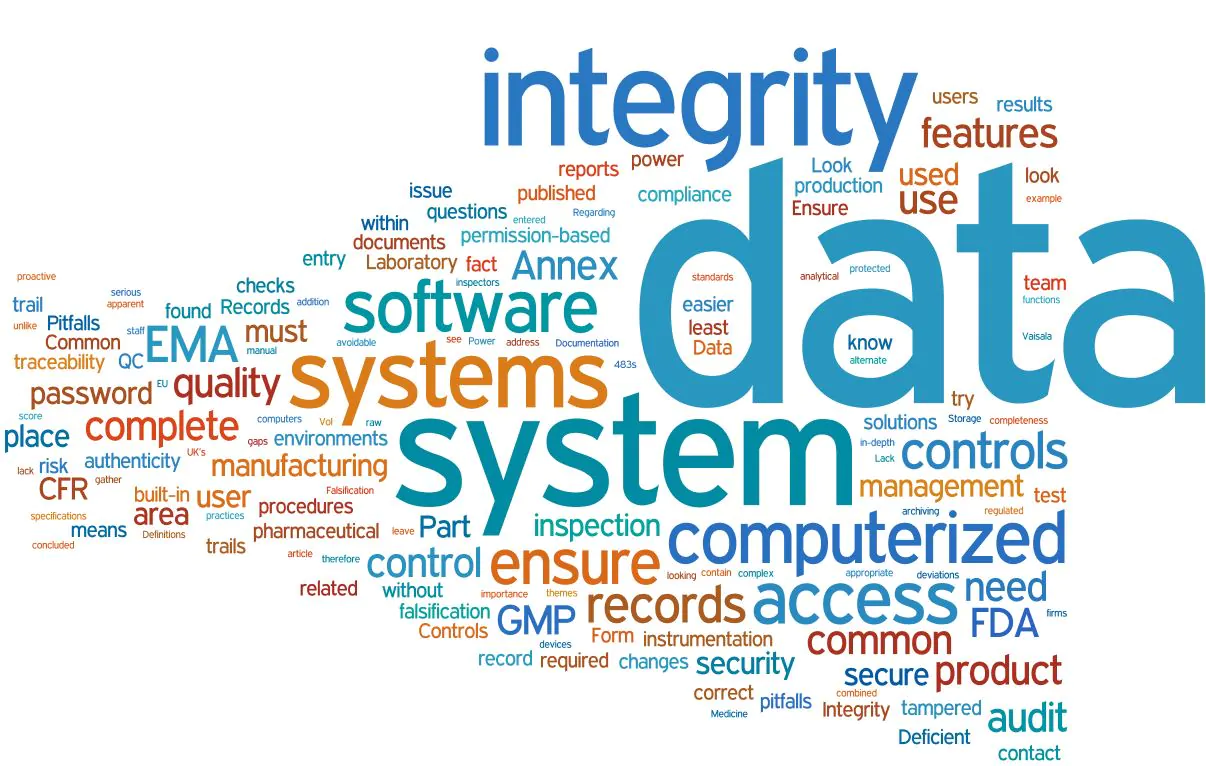
What is Data Integrity And Why it is Important?
Issues associated with business databases are generally related to accuracy and consistency. Across all business types there occur natural disturbances either substantial or larger database complications. To tackle such a vast demand for data generation and storage you need to follow basic steps to enhance data integrity from time to time. Data integrity measures can help maintain data quality and security up to the maximum level.
Business enterprises and large co-operations deal in overloaded information at a fast pace every day. During data processing of such a huge amount of data, the risk of data loss and errors is maximized many folds. After looking into multiple small and large businesses strategies, the blog presents a clear picture of proven plans and maps to eliminate the chance of errors within manual data entry business patterns. Data integrity can prove quite helpful in getting your database out of any prevailing and recurrent data disorders. Data is an integral element n every business. It requires regular upkeep, handling, updating, formatting, and storage. Hence, it is severely important to consult a professional data operator to create new and align existing databases.
What is Data Integrity in a Database?
Being a part of this modern digital age, it has become extremely essential to maintain data integrity while searching for new business content. To keep data relevant, error-free, and ready-to-use demands an eye for detail to make better business decisions daily. However, handling such an enormous amount of data is not as easy as it sounds.
Data integrity refers to the overall completeness, reliability, and accuracy of the data. It helps specify any lack of data between regular record updates. In addition, it indicates the quality and scope of stored information. Data integrity mechanism is carried out by checking validation and error checking procedures. The principles allow seamless execution of the data integration phase. The correction procedure is based on predefined company rules. For instance, you can easily filter out data from inaccurate times and dates. The significance of data integrity maintenance in a business can’t be overlooked. You can establish your relationships with partners and clients based on unique information. Not only this you can transfer data from one stage to another error-free.
Data Integrity vs. Data Quality vs. Data Security: What’s the Difference?
Many people confuse related terminologies such as data integrity, data security, and data quality with one other. However, these three concepts are very different at all levels. Let us begin with defining data integrity. Data Security essentially deals with protecting enterprise databases from data corruption and misuse. It involves techniques and methods to make data highly accessible to desired clients. Any security breaches can harm your business existence in many ways. Data integrity ensures data accuracy for present and prospect databases. The end target is to protect data from outside viruses, breaches, and errors. Similarly, data security and data quality are other facets of data integrity. They are essential aspects to keep data secure and functioning at all times.
Types of Data Integrity
Data integrity applies to all data warehouses and databases. It is categorized mainly in two categories –
Physical Integrity
Data integrity provides immense data protection against power outages, calamities, hackers, and other physical data loss. Moreover, storage issues and human faults can be unmanageable to operate information from an active business database.
Logical Integrity
It deals with data rationality. Logical integrity is concerned about the relations of data within datasets. It can be further divided into four types –
Entity Integrity
Entity integrity depends on making primary values or keys that can classify data items. The purpose is to avoid data being recorded multiple times. Every piece of data is unique and holds a special place within the data table. Entity integrity is indeed a critical aspect of a relational database. The data is set within a tabular format. It can be interconnected in various ways.
Referential Integrity
It represents a series of data procedures to ensure consistent use of data and its storage within acceptable formats. Referential integrity makes easy all sorts of data additions, alterations, and removals as per business rules implanted within databases structure. These rules must include conditions to remove duplicate data records. It warrants the data to be precise or does not allow recording of unsuitable data.
Domain Integrity
Domain integrity is an assortment of procedures that ensure data accuracy at the highest level. Every data item can be maintained in a domain to define datasets successfully. It encompasses the regulations to restrict the volume, type, and format of the recorded database. It ensures every column to be defined to a particular domain within a relational database.
User-Defined Integrity
User-defined integrity is defined by the set of rules prescribed by the data operator to fulfill business data-centric needs. At times, domain integrity, referential integrity, and entity integrity are not enough to refine data completely. You must need enterprise standards by integrating data into data integrity processes.
Why is Data Integrity Important?
Data integrity is vital for every business as it is an important element of data integration. Data values stored within the database are consistent with the data model. Accurate data helps businesses to get a lot of reliable insights from data models. The following points hold data integrity at risk-
Enter phone number within the wrong format
When a developer accidentally insert data within the wrong table (while transferring data between two formats)
A user may delete a record but another record table may refer to the same record
A user can unintentionally enter a phone number within the date field
There are very few examples when data integrity is at risk. However, you must be prepared for the worst possible situation. The more you are prepared the more the chances to avoid such instances successfully. To preserve data you must preserve data integrity, textual information, and numeric cells. To complete data, features like relationships, business rules, dates, definitions, and lineage must be precisely put in suitable formats. Data integrity ensures accessible data storage. This aspect proves helpful in locating databases at the time of need. Furthermore, you can also link one database to another with the help of data integrity. This guarantees recovery of data sets whenever required. It strengthens your business data stability and makes it reusable.
How ITS Can Help You With Data Entry Service?
Information Transformation Service (ITS) provides convenient Data Entry Solutions regardless of any additional investment of staff, resources, or infrastructure. By outsourcing your Data Entry Projects to us your company will be blessed with high-quality and diverse data entry-related options. Such quality service enables your data to be entered in various desirable formats with repetitive, inaccurate, incomplete, grammatically nonsensical words replaced to form better semantic clarity and understanding. Irrespective of the size and complexity ITS Team defines customized packages to directly answer specifically your business big data projects. If you are interested in getting ITS Data Entry Services you can ask for a free quote!




